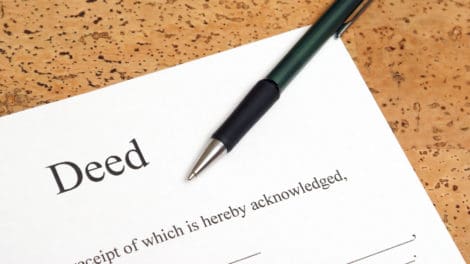The question in the title of this column can be answered in the following way: yes, no and maybe. It depends on the circumstances.
Curtis Seltzer
Curtis Seltzer is a land consultant, columnist and author of How To Be a DIRT-SMART Buyer of Country Property and Land Matters: The “Country Real Estate” Columns, 2007-2009.
Among the many character flaws Americans scold themselves for these days, our lack of savings is, perhaps, the most understandable.
Title to real property represents ownership of the bundle of rights in the land. Title also is evidence of ownership.
I’ve had several calls during the last six months from sellers who are in a jam. “HELP! We must sell immediately.”
Most would agree that a seller should own the property he’s selling. Simple enough. So what happens when a seller is not the legal seller?
The day after Memorial Day, I got out a little box that I keep in my sock drawer. Inside are my father’s two WWII shoulder sleeve insignias.
In most real-estate sales, the lawyer representing the seller has an easier job than the individual representing the buyer.
We are a nation obsessed with looking for, hoping for and predicting The Bottom of this real-estate market.
Let’s assume a buyer has turned up two or three names of local lawyers in an unfamiliar county in which he’s searching for country property, broadly...
It’s about 8 p.m. It is unseasonably cold in the Virginia mountains. I am sweating. I am also unseasonably cold…and cranky to boot.









